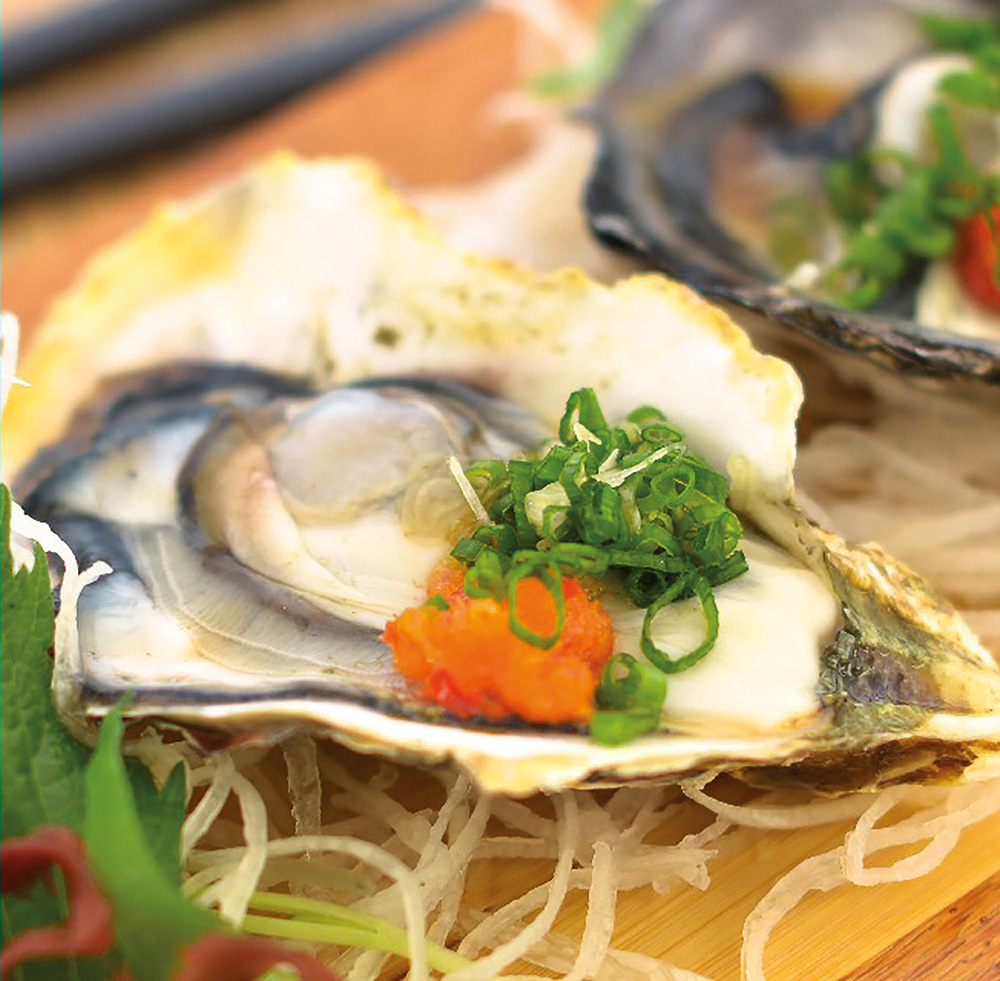In 2012, when Kanji first opened its doors on Sothearos Boulevard, there were only a handful of Japanese restaurants in Phnom Penh. Swiftly, Kanji earned the reputation as the “go to” place for creative Japanese cuisine, and the restaurant became the choice of embassy types, the city’s nouveau riche and those seeking something special on their night out. Three years on, and with 67 Japanese restaurants now in Phnom Penh, the pressure is on Kanji to maintain its spot in the limelight. Rising to this challenge, Kanji has launched a new menu, with Luu Meng (the inspiration) and Mike Wong (Executive Chef) setting out to lift the bar, yet again, for Japanese fare in the city.
Behind this renaissance, Luu explains, was a desire to increase the simplicity of the menu and make it easier for his customers to choose, while maintaining the quality for which Kanji is renowned. Given the size of the new menu – artfully printed and in book format – you wonder how successful he has been with the former goal. Still, what is between the covers looks as appetising as the menu is extensive. From the sushi and sashimi for which Kanji is famous, to nabenomo hot pot and chicken katsu ($8.80), hibachi scallops and Kagoshima gyu taki (seared Japanese beef) ($38), to noodle and teppanyaki sets ($22), there is going to be something here to satisfy your Japanese culinary fetish. There are even a few surprises thrown in, such as the beautifully presented Kurogoma tempura ice cream ($4.80) destined to become a capital favourite.
In conversation, Luu and Wong emphasise the importance of ingredients and freshness to the Kanji brand. There is also an emphasis on authenticity. The three come together in what can be predicted to be the restaurant’s new signature dish: the akame tuna. Although I am a “keep the tuna in the ocean” sort of guy, I have to admit that this is some of the finest fish I have ever tasted.
At a recent event, tuna fillet masters from Japan – yes, there is such a thing – were on hand to prepare the dish, which features the meat cut from the top portion of the tuna. From here, the fillet is lightly seared and seasoned with Kampot red pepper and freshly ground rock salt. The finished dish is designed, Wong explains, to deliver the full natural taste of the sea. And it is as good as it sounds. But such a meal does not come easily and Kanji plans to airfreight fresh tuna each day from Japan in order to serve it. This will be quite an undertaking in a country where logistics are not always a strong point, and tuna is most definitely not the kind of thing you want hanging around out the back of Pochengtong.
With so many culinary options in the capital it can still be a challenge to find a dining experience that matches quality with passion. Kanji delivers this at a price, although what you receive still represents superb value. Those who appreciate fine Japanese food will welcome this new menu.
Kanji Japanese Restaurant , #128 Sothearos Boulevard (next to Almond Hotel)
